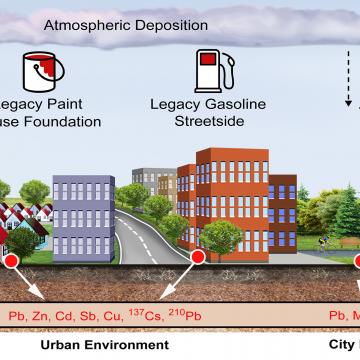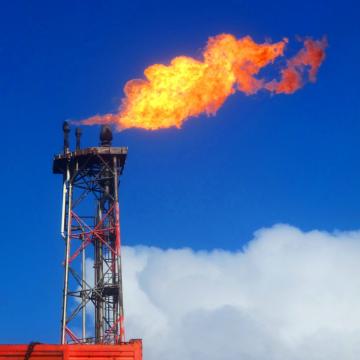-
NewsBy distinguishing between lead from modern sources and lead from pre-1970s vehicle exhaust fumes and leaded paint, the new test may be especially useful for assessing the hidden risks of legacy contamination.
-
NewsA new analysis provides state-by-state projections of the health and economic benefits the U.S. will see by 2030 if we begin reducing fossil-fuel emissions now.
-
NewsNew funding will help speed the development of an early-warning system that can predict the probability of malaria outbreaks occurring up to 12 weeks in advance, giving local officials time to put controls in place to prevent or curb the disease’s transmission.
-
NewsLori Bennear and Tim Johnson discussed two bills under consideration in Congress and their potential impact on the reduction of carbon emissions and more.
-
NewsClouds of smoke and ash from wildfires that ravaged Australia in 2019 and 2020 triggered widespread algal blooms in the Southern Ocean thousands of miles downwind to the east, a new Duke University-led study by an international team of scientists finds.
-
NewsMost people are likely to experience an extreme pandemic like COVID-19 in their lifetime, a new study shows.
-
NewsWarming waters along the Western Antarctic Peninsula have led to declines in the diversity and distribution of the region’s plankton population and its ability to absorb climate-warming carbon dioxide from the atmosphere.
-
NewsPopulations of giant pandas in the wild are more fragmented and isolated than they were 30 years ago and many continue to face a high risk of extinction despite recent gains in the species’ overall numbers, a new study by Chinese and American scientists finds.
-
NewsScientists at Duke University have developed a suite of four new tests that can be used to detect coal ash contamination in soil with unprecedented sensitivity.
-
NewsDecades after federal bans ended widespread use of lead-based paint and gasoline, some urban soils still contain lead levels that exceed safety guidelines for children.
-
NewsReducing emissions of methane, a short-lived but super-potent greenhouse gas, is the most cost-effective way to slow the rate of Earth’s warming in coming decades, a new United Nations report finds.
-
NewsWhen it comes to storing carbon during prolonged periods of drought and heat, wooded peatlands at low-latitudes have a three- to five-fold advantage over other peatlands. An ancient class of slow-growing fungi is the reason why.
-
NewsNew research reveals western North American forests may be less able than eastern forests to regenerate following large-scale diebacks linked to climate change. Over time, this could dramatically alter the continent’s landscape.
-
NewsThe proliferation of pits and ponds created in recent years by miners digging for small deposits of alluvial gold in Peru’s Amazon has dramatically altered the landscape and increased the risk of mercury exposure for indigenous communities and wildlife, a new study shows.
-
NewsThe stringent lockdown imposed by the Chinese government to slow the spread of COVID-19 early this year significantly eased the strain on hospitals there. Admissions due to non-COVID respiratory illnesses decreased by nearly 5,000, a new study by an international team of scientists shows.














